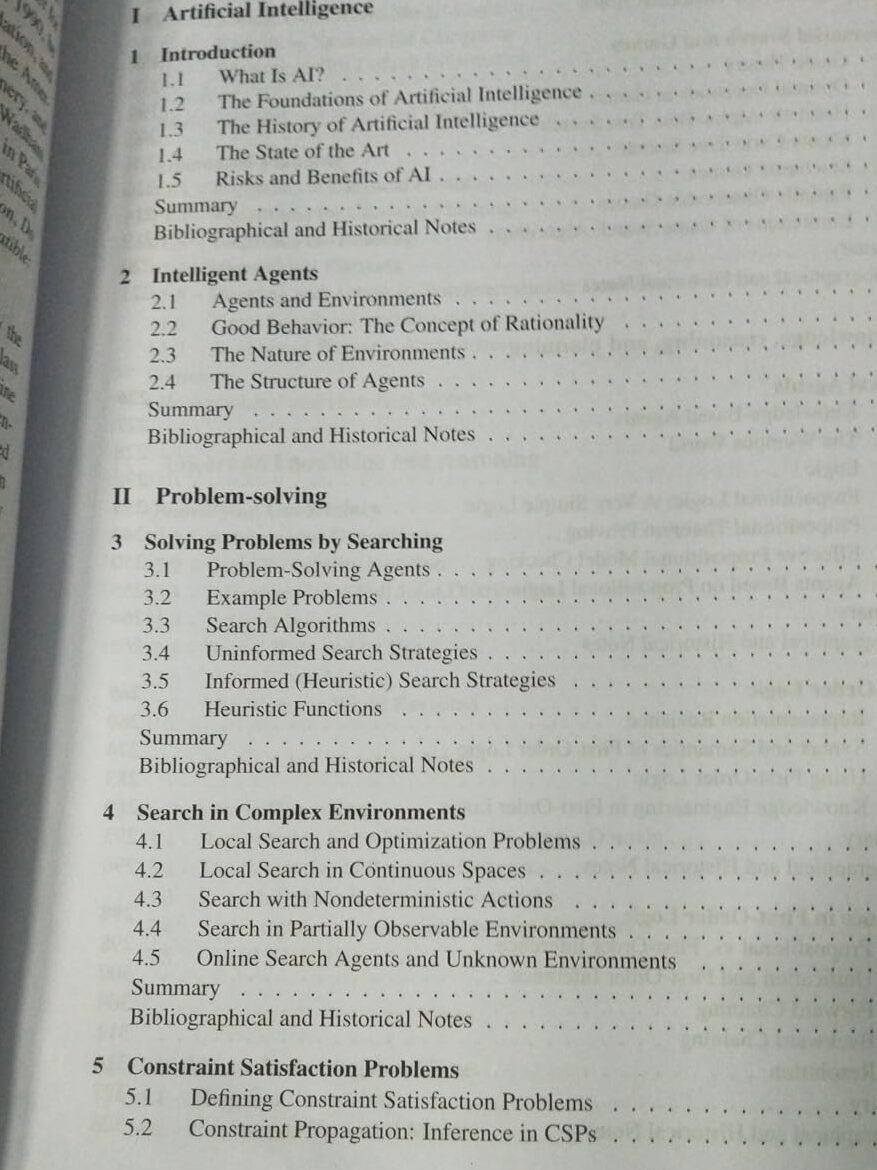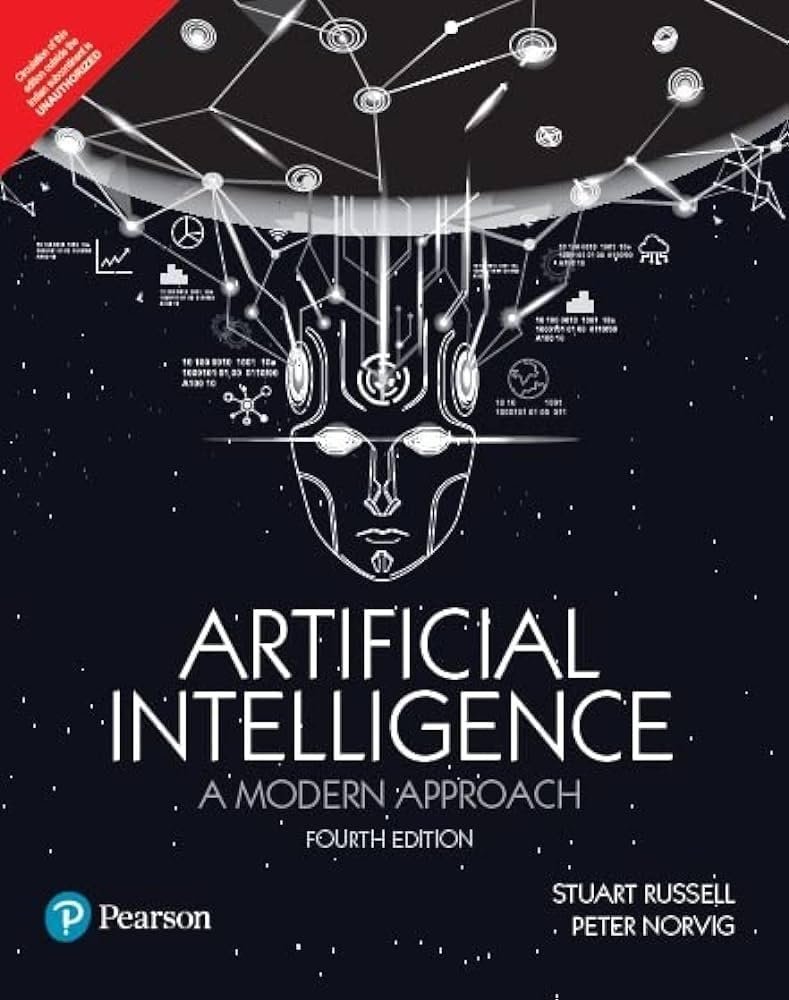Artificial Intelligence: A Modern Approach (AIMA) is widely regarded as the definitive textbook in the field of Artificial Intelligence (AI). Authored by Stuart Russell and Peter Norvig, the 4th edition provides a comprehensive and up-to-date exploration of AI, integrating foundational concepts with the latest advancements in the field. With over 1,500 universities worldwide adopting this text, it’s an essential resource for students, educators, and professionals alike.
🧠 Key Features
- Comprehensive Coverage: Spanning over 1,100 pages, the book delves into both classical AI techniques and modern developments, offering a balanced perspective on the evolution of artificial intelligence.
- Structured Learning: The content is organized into seven parts, each focusing on a core area of AI, facilitating a logical progression of topics.
- Practical Applications: Includes pseudocode for algorithms and references to online code repositories, enabling readers to implement and experiment with AI concepts.
- Updated Content: The 4th edition incorporates recent advancements in machine learning, deep learning, natural language processing, robotics, and ethical considerations in AI.

📚 Detailed Breakdown
Part I: Introduction to AI
Introduces the fundamental questions and definitions of AI, exploring various approaches such as:
- Acting humanly (Turing Test)
- Thinking humanly (Cognitive modeling)
- Thinking rationally (Laws of thought)
- Acting rationally (Rational agent approach)
It also discusses the interdisciplinary foundations of AI, including philosophy, mathematics, neuroscience, and linguistics.
Part II: Problem Solving
Focuses on algorithms for problem-solving through search techniques:
- Uninformed and informed search strategies
- Adversarial search (game playing)
- Constraint satisfaction problems
Part III: Knowledge, Reasoning, and Planning
Covers methods for representing knowledge and making logical inferences:
- Propositional and first-order logic
- Inference techniques
- Planning algorithms
Part IV: Uncertain Knowledge and Reasoning
Addresses reasoning under uncertainty using:
- Probability theory
- Bayesian networks
- Decision theory
- Markov decision processes
Part V: Machine Learning
Explores machine learning concepts:
- Supervised and unsupervised learning
- Neural networks and deep learning
- Reinforcement learning
Part VI: Communicating, Perceiving, and Acting
Discusses AI interaction with the real world:
- Natural language processing
- Computer vision
- Robotics
Part VII: Conclusions
Reflects on the future of AI, ethical considerations, and the impact of AI on society.
🛒 Purchase Information
- Title: Artificial Intelligence: A Modern Approach (4th Edition)
- Authors: Stuart Russell and Peter Norvig
- Publisher: Pearson
- Publication Date: April 28, 2020
- Format: Paperback
- Pages: 1,136
- ISBN: 9780134610993
You can purchase the book on Amazon India: Artificial Intelligence: A Modern Approach (4th Edition)












